|
Learning Italian with a native teacher (and in Italy!) is an opportunity that does not come easily. But fortunately, we can offer that chance at Erasmus Learning Academy (ELA)!
Our last Italian course, held from July 24-28 and taught by Martina Granata and Isabel Martínez, was attended by eight participants from Finland, Poland, Germany, France and the Netherlands. The participants were divided by level between the A1/A2 class (taught by Isabel) and the B1/B2 class (taught by Martina). During the course, our trainers covered topics such as work environment, culture, travel, hobbies... which served as a perfect way to study the grammar and vocabulary of the Italian language. At the end of the training, all participants were given a certificate of attendance to corroborate their participation in the course. The participants were also able to enjoy the city of Bologna thanks to our guided tours offered by the volunteers of our organization, as well as several lunches and dinners in typical restaurants of this fantastic Italian city. Finally, we would like to thank our participants for their involvement in the course: Minna Vasara from Oriveden Yhtaiskoulu, Anna Małgorzata Szmyd from Zespół Szkół Ogólnokształcących, Konstantin Chytiris from Wirtschaftsschule Dinkelsbühl, Emeline Morvan-Perot from Lycée Saint-Louis, Guinevere Simpson from Hogeschool Inholland, Ani Peltola from Oriveden Yhtaiskoulu, Aleksandra Parlati from Zespół Szkół Ogólnokształcących, and Dalila Timin from Rectorat de Besançon. Thank you very much! English, the language of international communication, plays a vital role in today's interconnected world. With over 1.35 billion people proficient in English, it serves as a gateway for global citizens to connect and engage. A new edition of the course “Intensive English language course for teachers and education staff“ course for teachers” took place in Bologna from 02/07/2023 to 08/07/2023. This course aimed to enhance the participants' language skills, focusing on communication, grammar, and vocabulary at the B1/B2 level. We welcomed eight education staff from the Koszalin University of Technology in Poland: Danuta Z., Dariusz K, Rafał R., Krzysztof D., Agnieszka M., Anna S-P., Joanna C., and Agnieszka S. This amazing group brought their enthusiasm and motivation, creating a vibrant and collaborative learning environment.
In the hectic world of possibilities, entrepreneurship emerges as a vibrant form of vision and transformation, giving rise to new ideas and imaginative solutions. Today, we are at a crossroads where nurturing young minds with an entrepreneurial spirit and honing their leadership prowess becomes a challenging but very important pursuit. Education is at the center of this great undertaking and this explains the need to teach entrepreneurship, awakening creative thinking and training young leaders.The new edition of the course “Teaching Entrepreneurship and Leadership at School” took place in Tenerife from 30/07/2023 to 05/08/2023. We have the participation of Riinu, Anne and Ksenia from Ágnes from Kiskunhalasi Református Kollégium Szilády Áron Gimnázium és Kollégium in Hungary, Ágnes from Heves Megyei SZC Bornemissza Gergely Technikum, Szakképző Iskola és Kollégium in Hungary, Mónika from Budapest III. Kerületi Krúdy Gyula Angol-Magyar Két Tanítási Nyelvű Általános Iskola in Hungary and Danila from Liceo Linguistico Statale Ninni Cassara' in Italy.To begin with, we work with the concepts of entrepreneurship and the fundamentals of business models. Entrepreneurship is the engine of innovation and economic growth, it involves identifying opportunities, taking risks and creating value. Already understanding business models is crucial to successful entrepreneurship skills. A business model describes how a company operates, generates revenue and delivers value to customers.Soon after, we worked on how to apply these concepts in schools. They equip students with essential skills and mindsets beyond the classroom, promoting creativity, problem solving and resilience. We work with practical exercises, improving the learning experience, stimulating teamwork and leadership skills. Learning these approaches also inspires teachers and administrators to be role models, fostering an entrepreneurial mindset among students.
Throughout the week, we did exercises that allowed participants to work on communication and problem-solving skills. In addition to dramatizations that simulated the presentation of Startups, this was done through a game with surprise content so that they could develop their creative skills. We had results that were fun and exciting for the whole group.Finally, a practical work was carried out, where the participants elaborated an entrepreneurship workshop. An important experience, which the participants have the opportunity to take back to their schools, so that it can be reproduced among their colleagues and, later, among their students. If teamwork and the search for knowledge are in the essence of entrepreneurship, it is always good to multiply it.
Nowadays, technology and online tools play an important role in the construction of learning environments. They can no longer be left outside the classroom or used just in case of emergency to replace traditional lessons. Technologies and online tools are then one of the keys to build new blended learning environments.
The new edition of the course “Making the most of new technologies, apps and social media in the classroom” course took place in Palermo from 09/07/2023 to 15/07/2023. The participants came from all across Europe, with Jennifer, Michaela, Judith and Nicole from Domschule Osnabrück in Germany, Zsolt from Tisza-parti Általános Iskola in Hungary, Jana from Gymnázium Šrobárova in Slovakia, Magdalena, Nina and Doinita from Colegiul National "Alexandru Ioan Cuza" in Romania, Zoltán from Pannonhalmi Bencés Gimnázium és Szakkollégium in Hungary, Agueda Ribes from Institut Pedraforca in Spain and Michaela Valova from Stredni skola a Vyssi odborna skola, Koprivnice in Czech Republic. During this course the participants learnt about new tools to use in education and trained also with already known tools, trying to integrate them into teaching and thus improving the teaching experience as much as possible. First of all they had a look at the most effective tools used in education to work on collaborative projects and to design engaging multimedia content for students. On the second day, they explored different tools used to create quizzes and games to involve students in the activities but also to realize some formative assessment moments. During the training course, they also had the possibility to work on editing tools for pictures and videos that may find a lot of different applications in the classroom; introducing a new subject, revising an old one, creating multimedia lessons, foster creativity among the students. At the end of the week, they focused on the creation of multimedia and interactive content through two popular web tools but also on the creation of a website or a blog, a challenging activity both for teachers and students. During the whole week, they also explored tools used to regroup and share resources and content. In particular, they worked with platforms that make it possible to upload videos, pictures, documents, texts, audio file, drawings, and other materials, and to share all of this with students and colleagues using just one link. They trained a lot on collaborative walls, sharing not only their works but also their ideas and best practices from their schools and countries. Sharing has been one of the pillars of this training course. The participants were open to share their knowledge on online tools and best teaching practices with colleagues from other countries and they were also not afraid to tell their opinion, especially about the use of social media in the classroom, one of the topic covered during this course that was also used during the exploration of an online tool suited to debates. The exchange of views was also useful to discover the different rules used in different schools and countries on the use of online tools and social media. Finally, some time was spent on the presentation of the different schools and of the works produced previously using online tools already know by the participants and to take a look at the most useful for the teaching experience among these. It was an enriching week and we are sure that the participants will improve more and more in the use of technologies and new tools, given the high quality of the works that they produced in just one week. For sure this team of teachers will make learning engaging and unforgettable for the students. Discover more about this course here. Working in a team is not always easy: different personalities, miscommunications and an unclear definition of roles are all aspects that can negatively impact on the efficiency of the group. For this reason, the aim of this course was to learn a variety of skills that can both ensure team efficiency but also promote a positive environment in the workplace. By participating in this course our participants got some inputs on how to become better team leaders and team members, whether it’s inside a classroom or with colleagues. The new edition of the course “Effective Group Management in education: building Teamwork among students” took place in Bologna from 16/07/2023 to 22/07/2023. The participants came from all across Europe, with Teodorico, Zélia, Mariana and Sofia from Agrupamento de Escolas Emídio Navarro in Portugal; Zsolt from Kiskunhalasi Református Kollégium Szilády Áron Gimnázium és Kollégium in Hungary; Judit from Budapesti Műszaki SZC Neumann János Informatikai Technikum in Hungary; András from Karinthy Frigyes Gimnázium in Hungary; Renato and Anita from Jobra in Portugal; Ivana, Martina, Zinca and Vedran from Pučko otvoreno učilište Zagreb in Croatia and Anca from Secondary School Mircea Santimbreanu in Romania. During the course we got to tackle different aspects of working in groups and leading teams. First of all we focused on what makes a group different from a team. The participants got to learn that not all groups are teams because what drives a team is a common goal so a team leader should keep in mind that the common objective is the priority. Participants also discovered the different stages a team goes through and what are the characteristics of each stage so that they could find the best strategy to overcome tensions or issues. The second topic the group focused on was the important of team roles. Through a series of group activities the participants experienced firsthand how difficult it is to work together when roles and tasks are not well defined: this can in fact generate confusion, tension and episodes of miscommunication but, most importantly, is a waste of precious time because it leaves team members unsure of what their role inside the team is and what is expected from them. On the third day of the course it was time to concentrate on how to effectively lead a team. A good leader needs to be able to adapt to the situation and needs to fully aware of the strength and weaknesses of their coworkers as individuals but also of the group dynamics. The participants learnt that there is not only one way to be a good leader but that there are in fact different leadership styles that are all equally valid, with pros and cons, and that can all be adopted according to the team and the specific situation. As team leaders, the participants also learnt the basics of coaching and the importance of using a growth mindset attitude and language to keep the motivation and the good mood in a team. The last group management skill that we tackled was how to encourage peer feedback and peer assessment in the classroom. Peer learning strategies allow students to take an active role in their own education, shifting the focus from the grading itself to the learning process. The participants tried some peer learning and peer feedback strategies and had the chance to experience learning as their students do. Overall it was a great week, full of learning, knowledge and best practices exchanges but also fun! The participants left with a new toolbox of activities and strategies that we are sure they’ll be able to apply in their classrooms. More info on this course here. Being able to communicate and use a foreign language in context plays a fundamental role in an everyday more globalized world. In order to achieve this aim, Content and Language Integrated Learning (CLIL) has emerged as a powerful integrated methodology that combines language learning and content learning. By learning how to incorporate ICT and game-based tools, multimedia content creation, and non-formal experiential activities, teachers are more equipped to promote linguistic diversity in the classroom.
A new edition of the course “Content and Language Integrated Learning (CLIL) course for teachers” took place in Palermo from 23/07/2023 to 29/07/2023. The participants came from all across Europe, with Montserrat and Rafael coming from two different schools of Germany, Berufsakademie Passau and Gymnasium Mariano-Josephinum, respectively; Ferenc from Kiskunhalasi Református Kollégium Szilády Áron Gimnázium és Kollégium, Hungary; Barbara and Rita from SP Żmigród, Poland; Kadri, Taisi, Marina and Urve, from Merivälja School, Estonia; Amélie from Ecole Marguerite Picart, France. The CLIL course began with a moment where all the participants had the opportunity to share their experience with CLIL practices and methods and their knowledge on CLIL. Then, we looked at the CLIL key principles, that synthesise the theoretical concepts concerning the role of language, content, cognition, communication, and culture. In particular, we focused on the role of language, that should be used both for learning and for operating in the classroom. The course emphasized the role of the teacher in facilitating language integration and supporting the students in their own learning process, creating a rich learning environment that nurtures both content knowledge and language skills. On the following day, we looked at how to integrate these principles in an effective lesson by exploring some lesson planning examples. After the analysis, participants began to design their own lesson plan drafts, thinking about how to combine the learning outcomes of the subject with the ones of the language involved. During the course, we looked at some ICT tools to use in education, with a focus on game-based tools, interactive presentations, tools for creating video lessons and collaborative spaces. Our teachers had the time to practice these tools and think about what and how to integrate some of them in their lesson plans. Moreover, participants were introduced to the world of non-formal education that can make CLIL lessons more engaging and interactive. In particular, they tested some activities that involve the use and knowledge of both a subject and the foreign language. Finally, we also focused on assessment that is usually seen as a difficult part of CLIL lesson planning, because it needs to account for the goal and objectives of two different subjects (language and content). In particular, we discussed about the different forms and strategies for doing assessment. Participants could also finally share their lesson plans, which incorporated the newly acquired strategies and activities developed throughout the week, proving their ability to create engaging CLIL classrooms. More info on this course here. In an evolving world, language acquisition plays a major role in encouraging effective communication and shared understanding between diversity of cultures. Content- and language-integrated learning (CLIL) has proven to be an effective approach that combines language learning with subject-based education. By mastering the inclusion of ICT and game-based tools, creating multimedia content, and participating in engaging in dynamic experiential activities, students are better prepared to represent linguistic richness in education and work toward fulfilling their role as European citizens.
A new edition of the course “Content and Language Integrated Learning“(CLIL) course for teachers” took place in Bologna from 23/07/2023 to 29/07/2023. The participants came from all across Europe, with Johanna from Rákospalotai Meixner Általános Iskola és Alapfokú Művészeti Iskola in Hungary, Daniela and Jitka from PRO TRAVEL in Czech Republic, Susan from Werenfridus Tabor College in Netherlands, Anne from Jynkkä School in Finland, Krisztina from Jurisich Miklós Gimnázium in Hungary, Roseanna from College Saint Louis in Belgium and Emina from OŠ Sveti Petar Orehovec in Croatia. The CLIL course began with a lively brainstorming session, motivating participants to present their current practices and prior knowledge about CLIL. This collaborative activity created an interactive atmosphere that stimulated knowledge sharing and exploration. CLIL principles were then discussed theoretically, emphasizing the importance of teaching material in a second language. Throughout the course, special emphasis was placed on the essential role of the teacher in promoting linguistic integration and creating a dynamic learning environment that promotes both content knowledge and language proficiency. The CLIL course offered valuable insights into effective lesson planning within the CLIL context. Participants were introduced to valuable tips and techniques for creating engaging and purposeful CLIL lessons. Through resource and experience sharing, they started jotting down ideas on how to incorporate new inputs into their lessons. The course extensively covered the incorporation of ICT-based stimuli in CLIL classrooms to creatively utilize multimedia resources. Participants had the opportunity to explore various ICT tools commonly used in education, with a practical emphasis on those most pertinent to their individual needs and interests. The course introduced participants to experiential learning activities that elevate CLIL lessons. They explored successful strategies to foster collaboration and peer learning in the classroom, facilitating language communication while focusing on the subject matter. Through hands-on experiences, they gained valuable insights into creating an interactive and immersive learning environment. The participants created a particularly positive working atmosphere through their engagement, their interest in learning and their joy in working together. It was exceptionally enjoyable experience to collaborate with such an enthusiastic group, may their return home be richer with knowledge, skills, friendship and inspiration! More info on this course here. In our pursue of preparing students for real world careers and challenges while equipping them with 21st-century skills, we sometimes overlook our responsibility as educators to dream and establish environments where creativity can thrive, allowing everyone to bring out their best selves. It is therefore of the utmost importance to create nurturing learning spaces that inspire imagination and encourage the unique potential of each student. The new edition of the course Creativity for the future: promoting Critical Thinking and Problem Solving in the classroom was held in Bologna from 16/07/2023 to 22/07/2023. The participants came from the schools all across Europe, with Tania, Aldina and Maria from Escola Básica e Secundária Amadeu Gaudêncio in Portugal, Krisztina from Újbudai Grosics Gyula Sport Általános Iskola in Hungary, Gabriella from Budapesti Műszaki SZC Neumann János Informatikai Technikum in Hungary, Krisztina from Karinthy Frigyes Gimnázium in Hungary, and Cornelia from Internationale Oberschule Meerane in Germany. Regarding the key competences for living in the 21st century, participants discussed the topics of learning and innovation skills, digital skills and also career and life skills, focusing their attention on the 4Cs: critical thinking, creativity, communication and collaboration. A crucial insight gained from the session was the diverse functioning of our brains and thinking strategies facing problem-solving tasks, which we experienced firsthand through practical exercises. Participants were presented with a series of challenges aimed at prompting them to reflect how typical obstacles to innovative "out-of-the-box" thinking can be easily overcome by applying specific strategies. For example, using the 6 Thinking Hats method, participants were able to put into practice “lateral thinking” and devise its concrete application to some existing content they are teaching. During the training, participants were also introduced to visual strategies that promote creative expression and effective idea generation. The focus was on moving beyond the traditional perception of "visual thinking" as solely related to art. Innovative and digital perspectives were proposed to expand the horizons of educators and encourage them to use new activities as catalysts for stimulating students' creativity and initiating fruitful brainstorming sessions. A reflection on the importance of training students’ critical thinking skills was needed in a world where most of the time they are passively exposed to loads of (dis)information. Participants engaged in reasoning, questioning and debating activities that could be adapted to different classroom settings to help students become active and aware agents of their own learning. The program also emphasized that fostering creativity and critical thinking does not always require the invention of entirely new methodologies. Often, innovation can arise from reframing and adapting traditional tools. By creatively applying traditional games to their specific subjects, educators gained valuable insights into building stronger learning perspectives while infusing classrooms with fresh approaches. Finishing the course, everyone had a chance to develop their lesson plans, which incorporated the newly acquired strategies, proving their readiness to create a creativity-rich classrooms. Discover more about this course here. Nowadays it is crucial to explore and get familiar with diverse non-formal teaching methods and strategies to discover their potentialities in enhancing education effectiveness. Thinking beyond the brick- and-mortar walls of the traditional classroom, non formal education is “any organized educational activity outside the established formal system – whether operating separately or as an important feature of some broader activity – that is intended to serve identifiable learning clienteles and learning objectives” (Philip Coombs, 1973).
The new edition of the course Non-Formal Education Teaching Methods and Strategies took place in Bologna from 09/07/2023 to 15/07/2023. The participants came from the schools all across Europe, with Katalin from Vajda Péter Evangélikus Gimnázium, Judit from Budapesti Műszaki SZC Neumann János Informatikai Technikum and Katalin Mária from BSZC Széchenyi Bilingual Secondary School of Economics in Hungary, Ecem from GEBKIM Eğitim, Araştırma ve Sağlık Vakfı in Turkey, Wanda from CVO VOLT in Belgium, Laine and Indra from Barboleta Ltd in Latvia, Simona, Nicoleta and Marilena from SCOALA GIMNAZIALA NR. 2 VIDELE in Romania and Almudena from INSTITUTO JUAN DE JUNI in Spain. During the entire week, we delved into various tools and approaches of non-formal education. At first, we started exploring visual strategies. Participants engaged in artistic activities like creating collages and drawings to stimulate expression through the use of metaphors. Through these visual exercises, the group discovered how art can serve as an effective medium for discussing various topics and expressing complex concepts. Speaking games and role-play games are another kind of non-formal educational activity: these types of games are useful for enhancing cooperative learning, creativity and to develop public speaking and dialectic skills. Additionally, playing adapted version of Battleship, crosswords and participating in drawing games in pairs offered the new perspective on implementing gamification in the learning process in their schools, adapting these tools to students' needs. Through the process we also emphasized the importance of team building and team working in education: collaborating with other team members can lead to productive results and allows each member to make their valuable contributions within the group. On the final day, the participants had a chance to familiarize themselves with a digital tool delving into a city quest in Bologna. This experience enriched their cultural knowledge while also equipping them with the skills to create their own educational paths within the app for use with their students at schools, parks, urban settings and even museums. In conclusion, the educational experience of this training provided participants with the opportunity to experiment with innovative methods within a safe and stimulating environment. As a result, they enhanced essential skills such as teamwork, empathy, and critical thinking, while also creating unique and effective non-formal educational tools. Discover more about this course here. |
Welcome to the ELA Blog. Here you will find articles and photos of our courses and have a look at the topics addressed during the week in Bologna, Palermo and Tenerife. You will also have the chance to take a peek at our projects and check out what we have been up to.
Archives
May 2024
Categories |
-
Course catalogue
- 2023-2024 course catalogue
- Soft Skills >
- ICT and New Technologies >
- Inclusion and Diversity >
-
Innovative Teaching Methods
>
- Innovative teaching methods discovery
- Non-formal education teaching methods
- Dual education and work-based learning
- Teaching leadership and entrepreneurship
- Project based learning
- Game based learning and gamification
- Green skills
- Outdoor education
- Outdoor education trekking edition
- Promoting creativity and critical thinking
- Languages and EU projects >
- Preschool >
- Erasmus Plus KA1
- What we do
- About us
- Locations
- Blog
- Contact us
 English
English български
български Čeština
Čeština Español
Español Français
Français ελληνικά
ελληνικά Italiano
Italiano Polski
Polski Português
Português Română
Română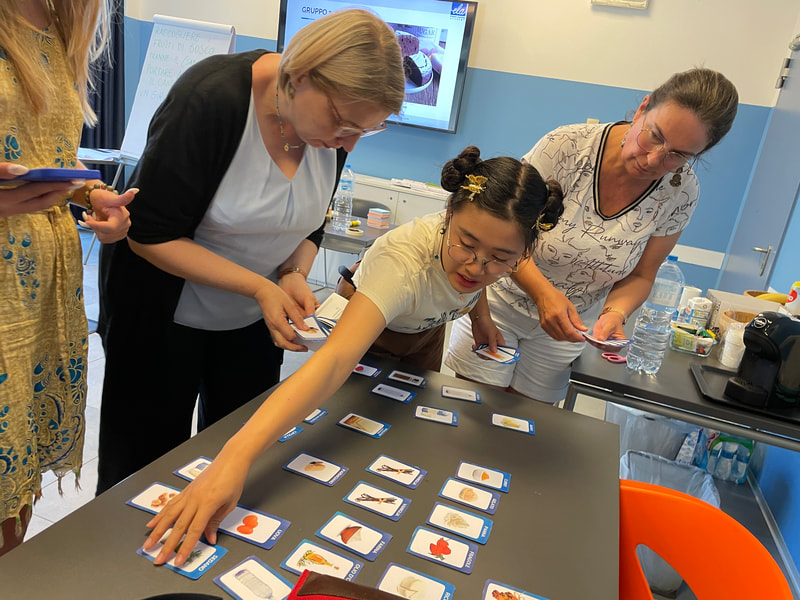
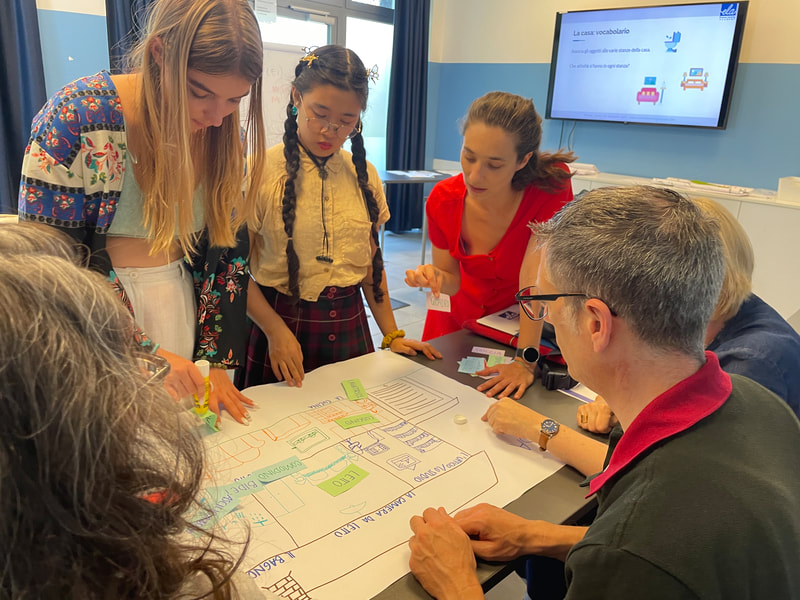
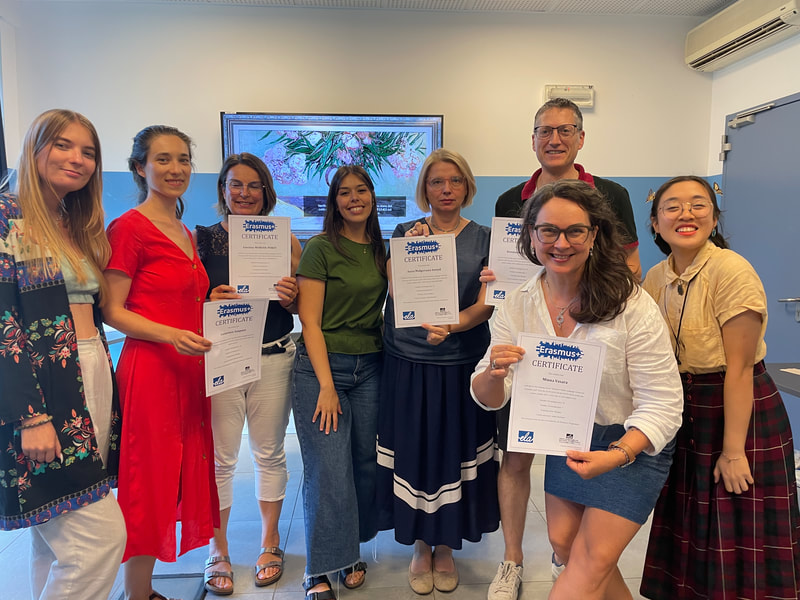
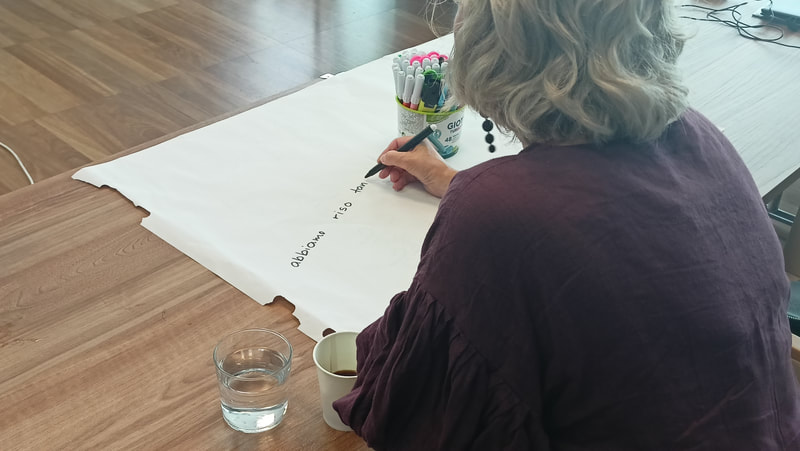
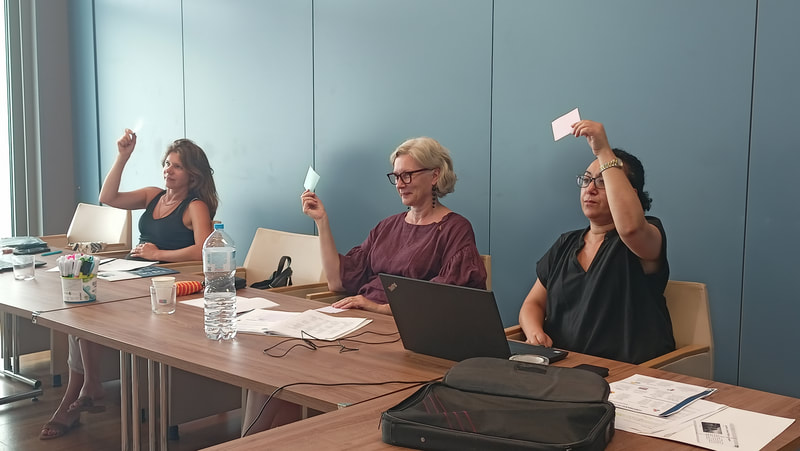
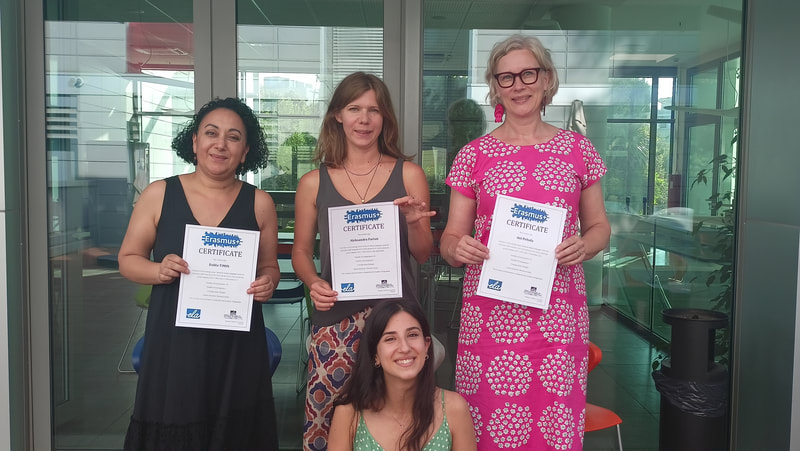
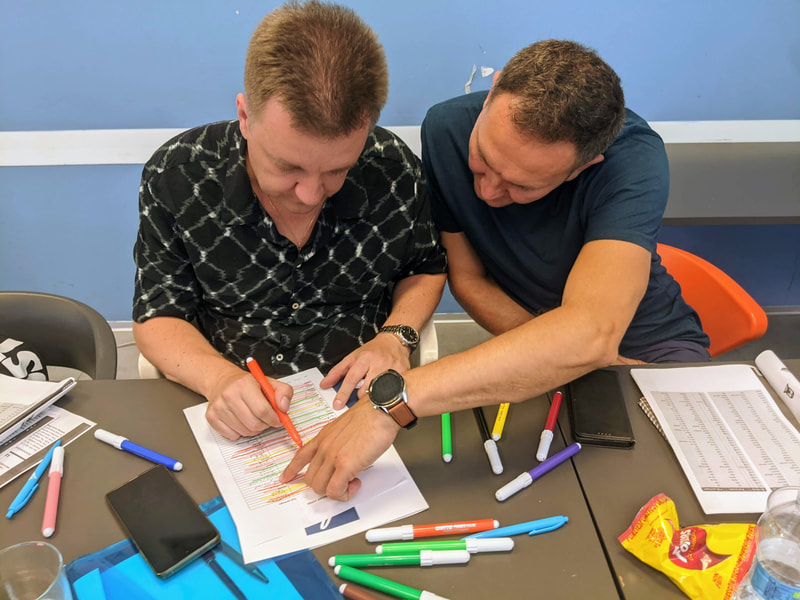
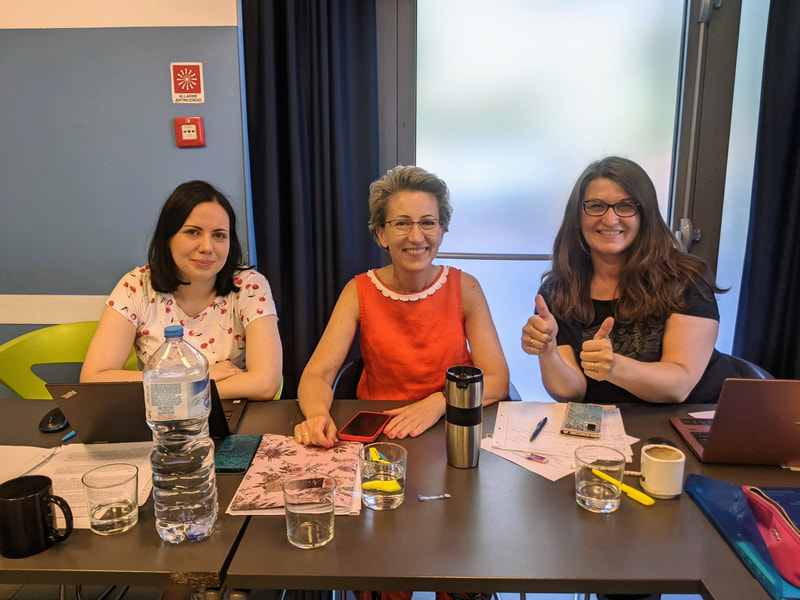
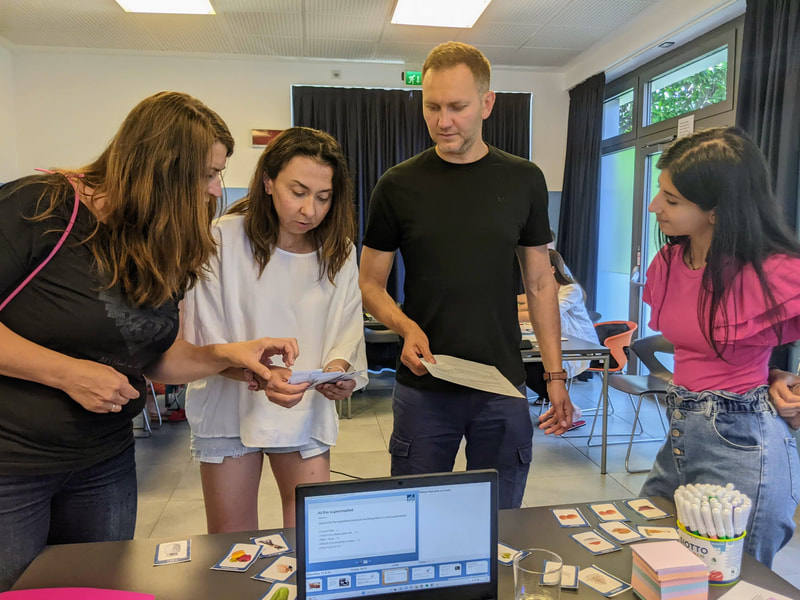
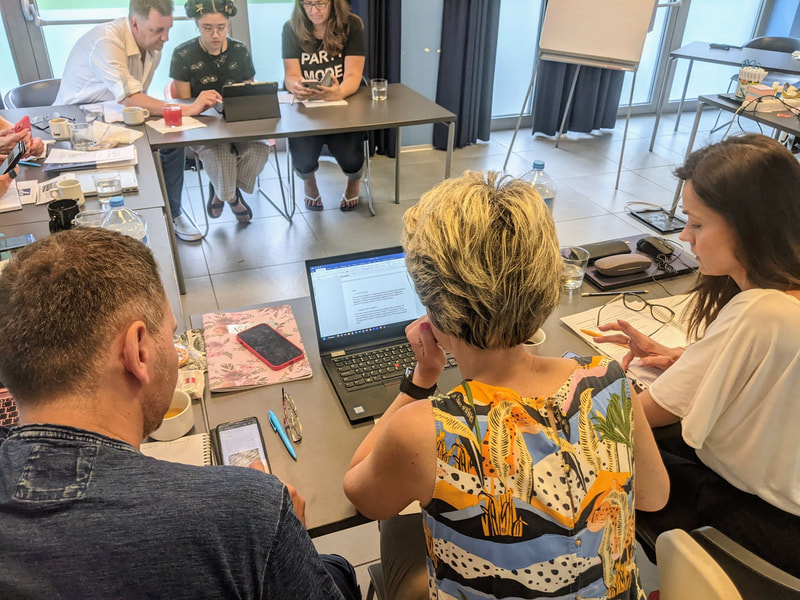
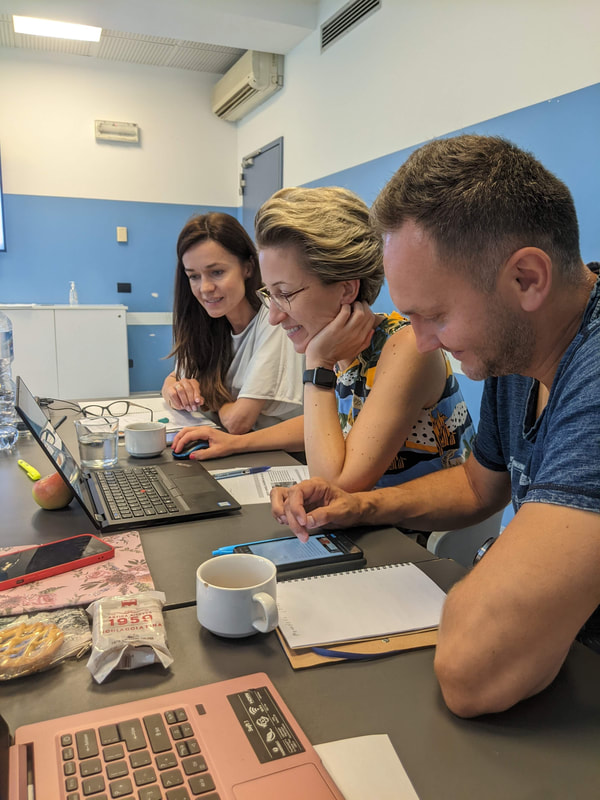
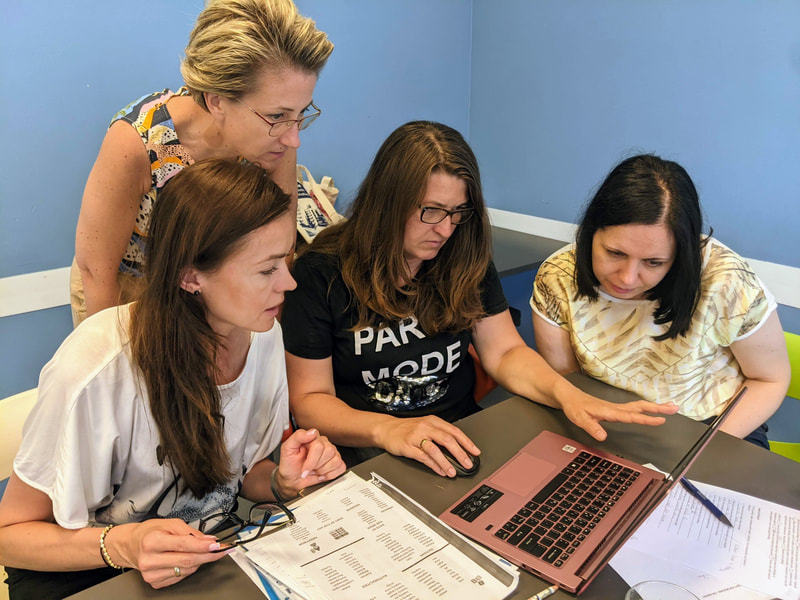
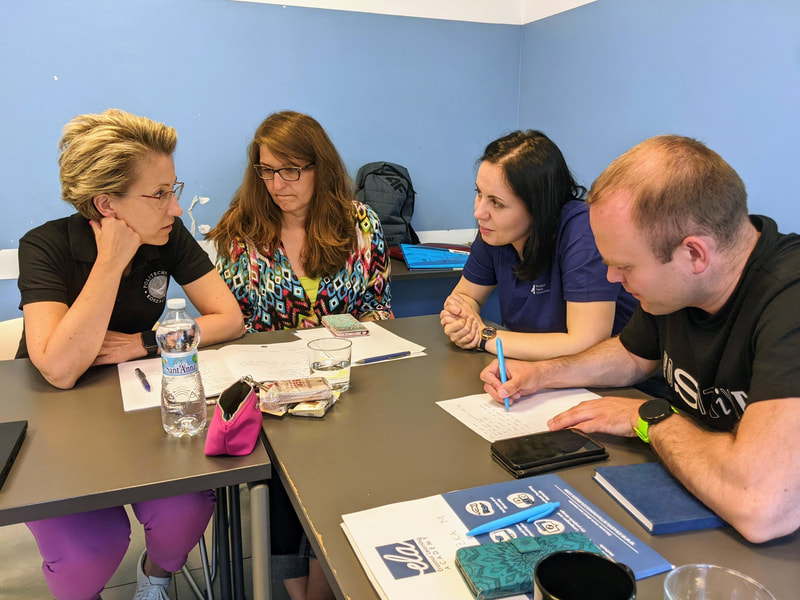
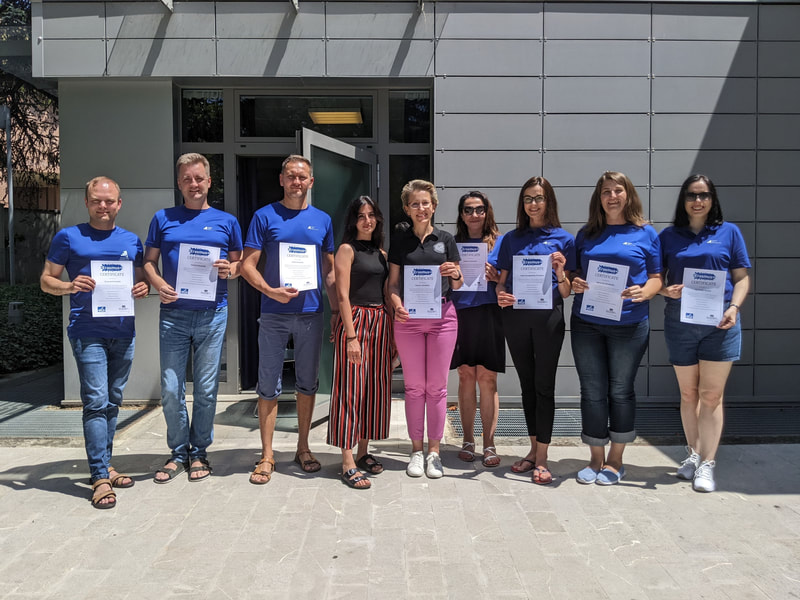
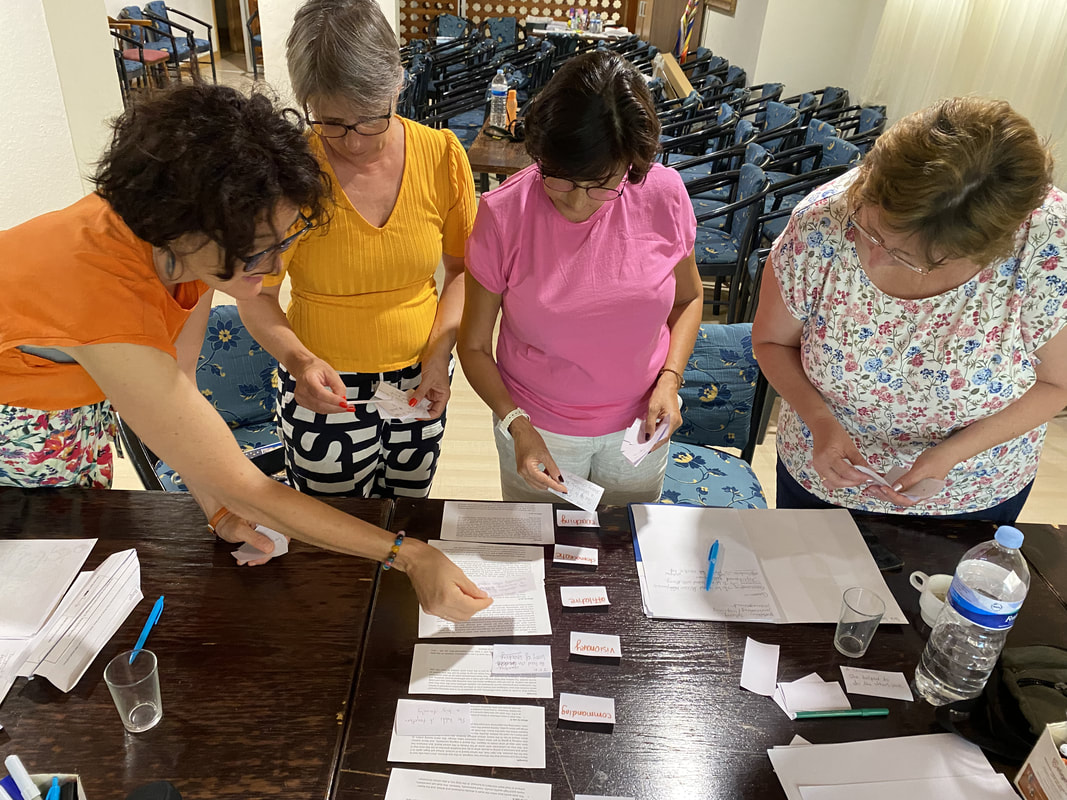
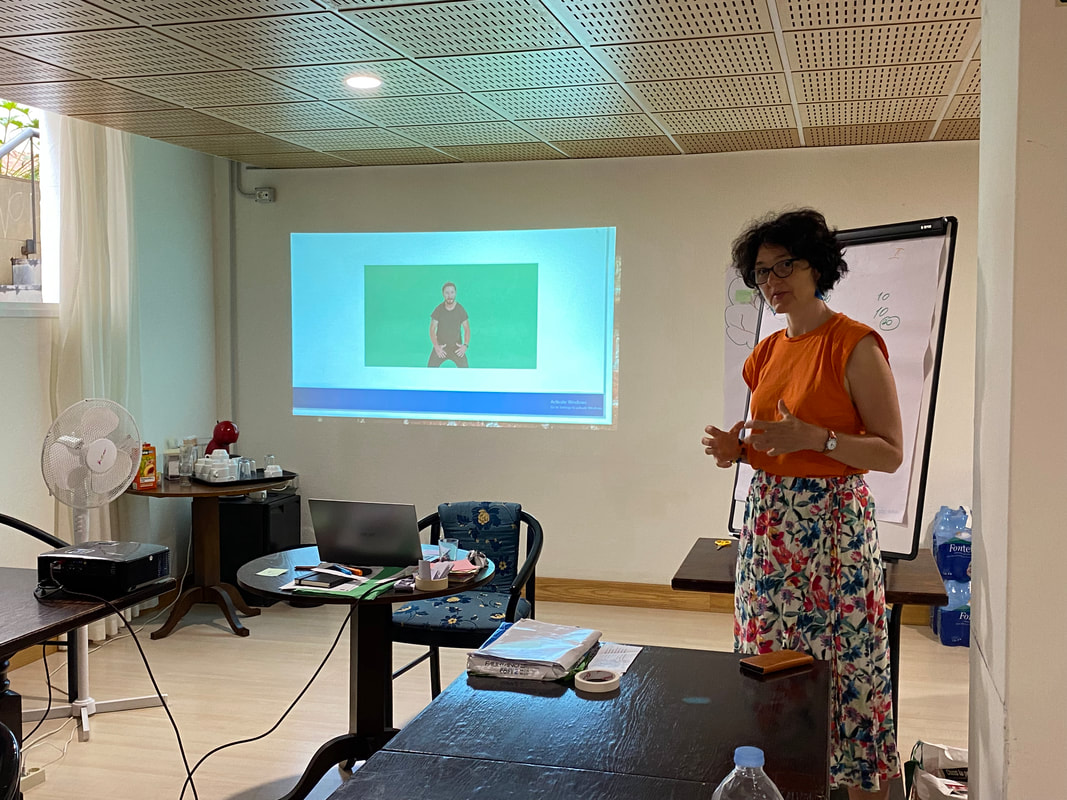
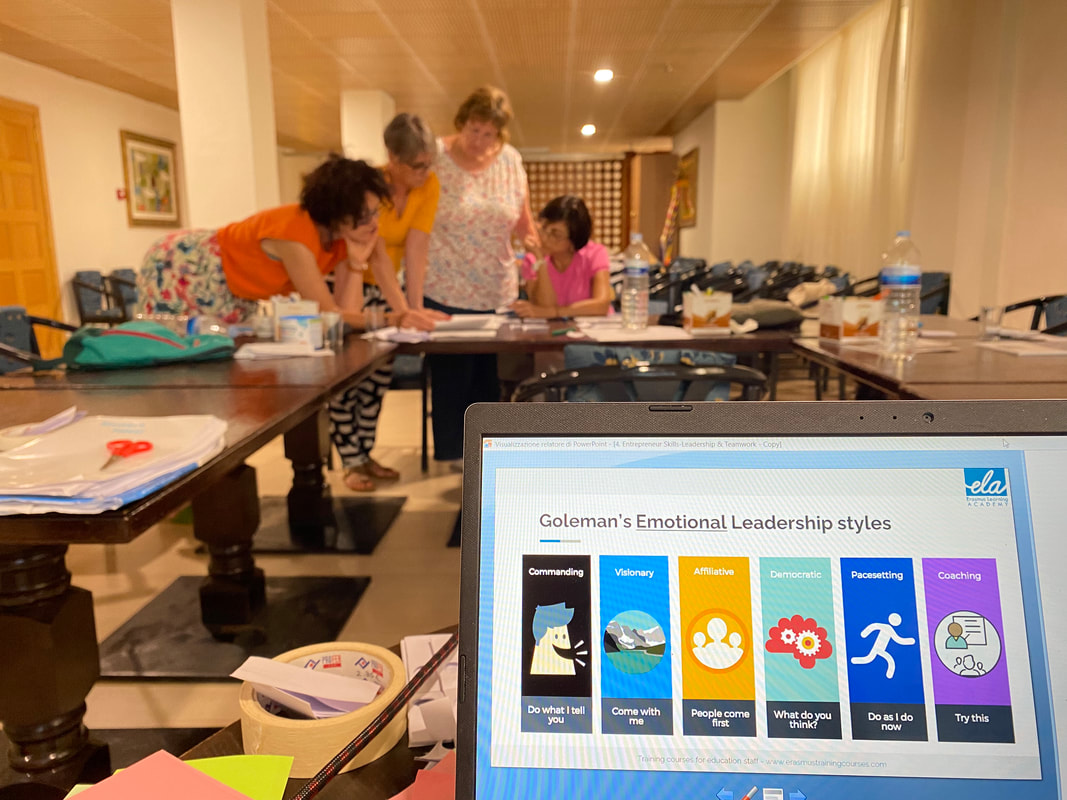
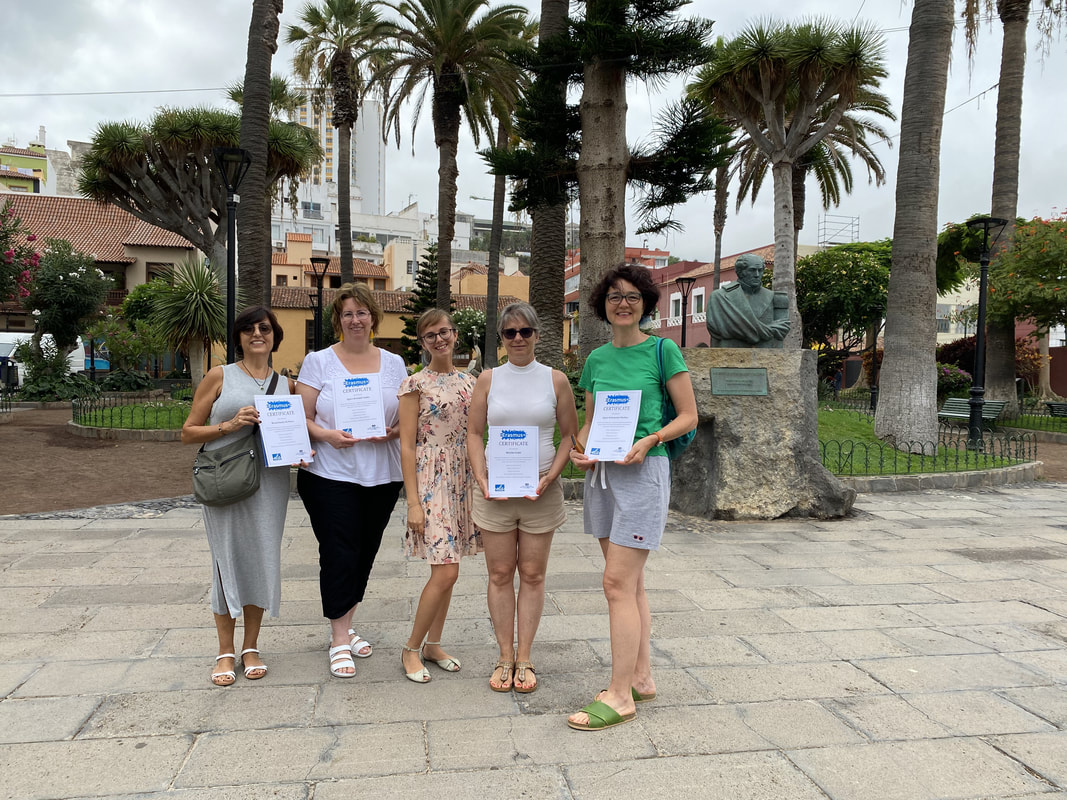
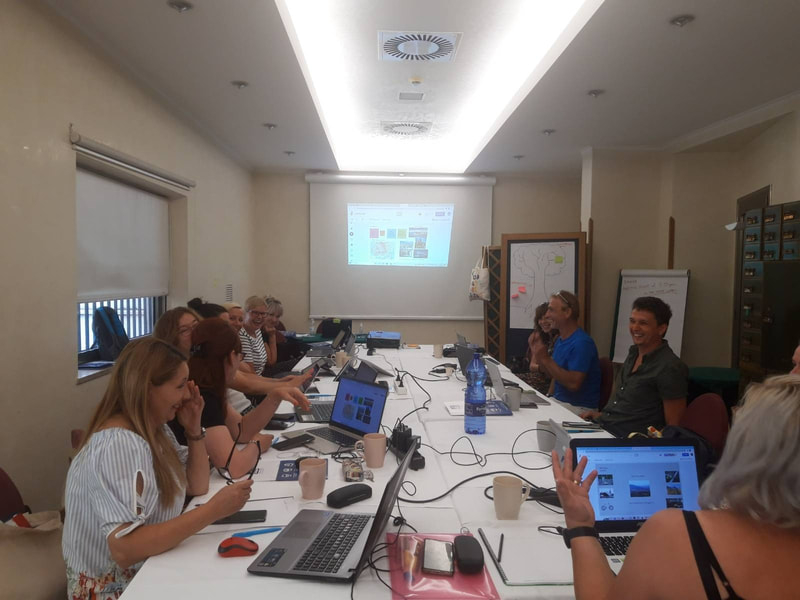
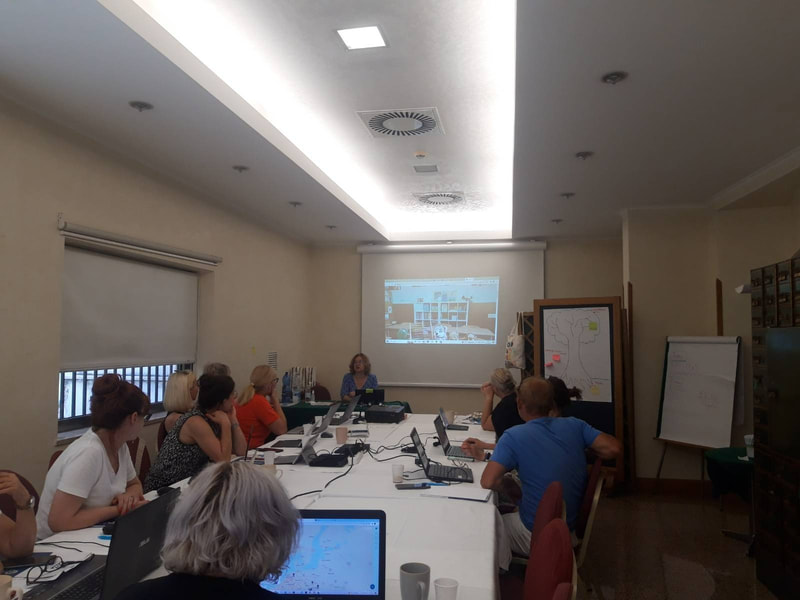
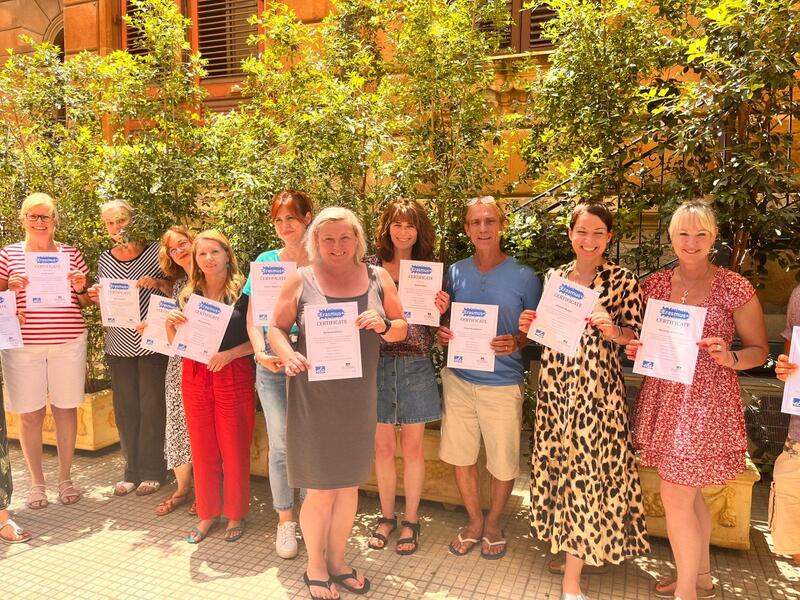
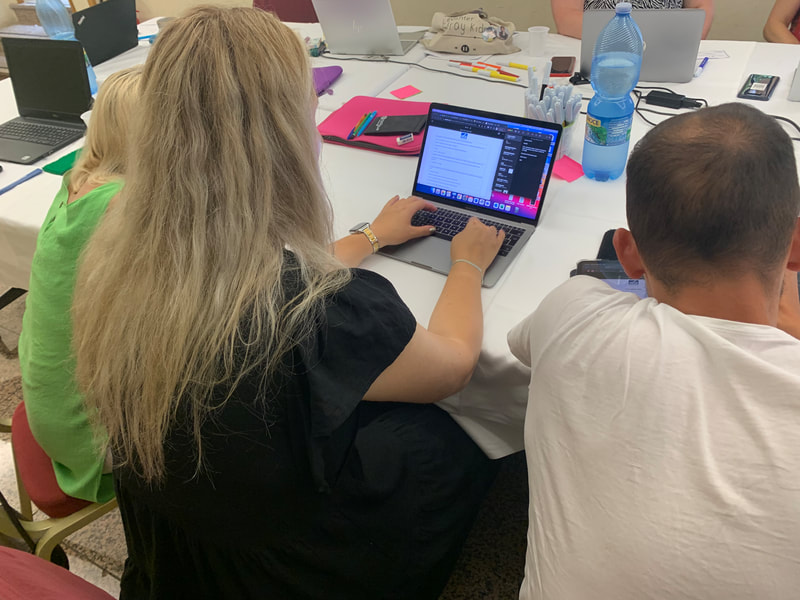
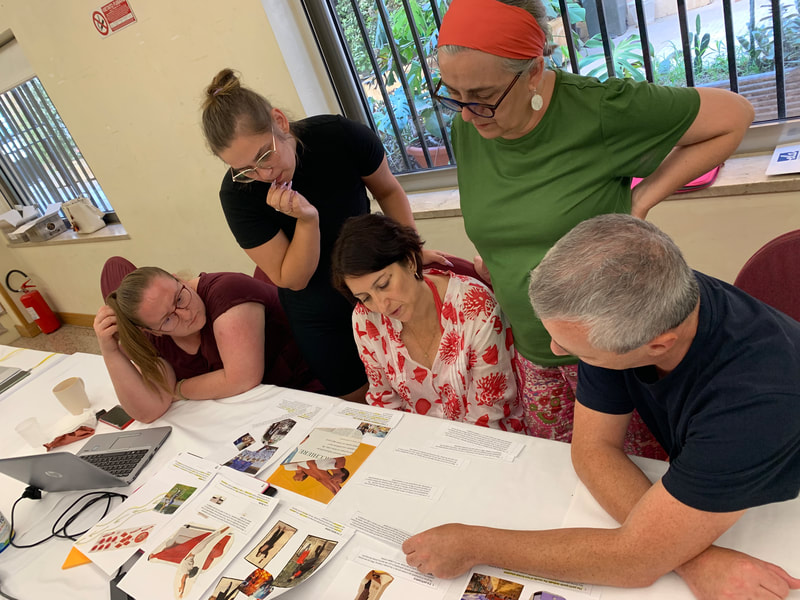
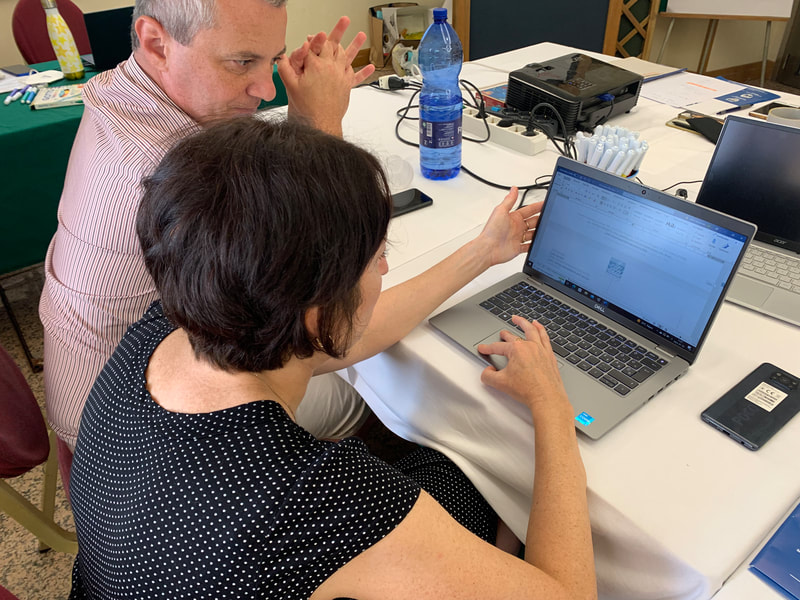
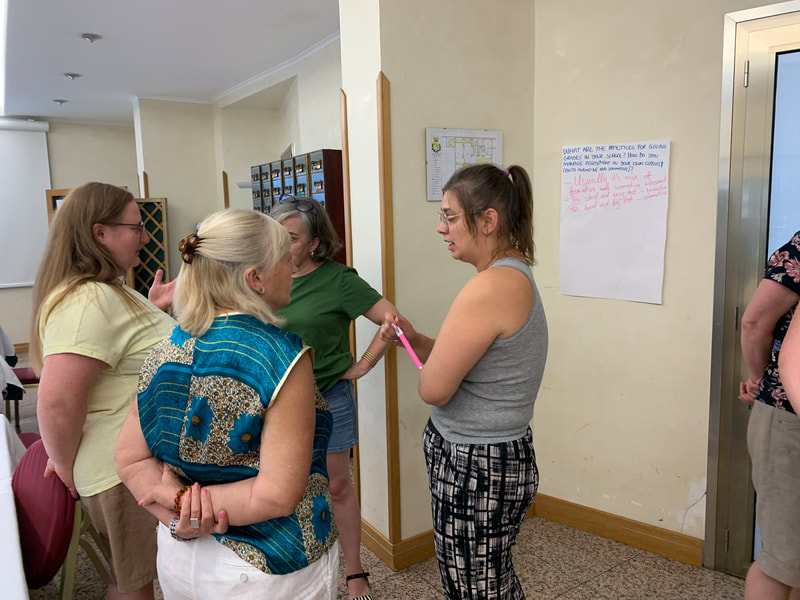
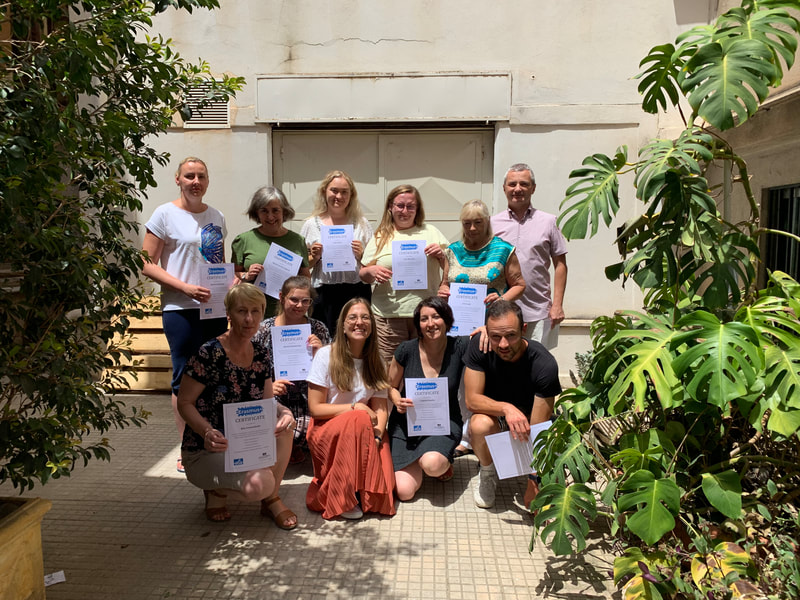
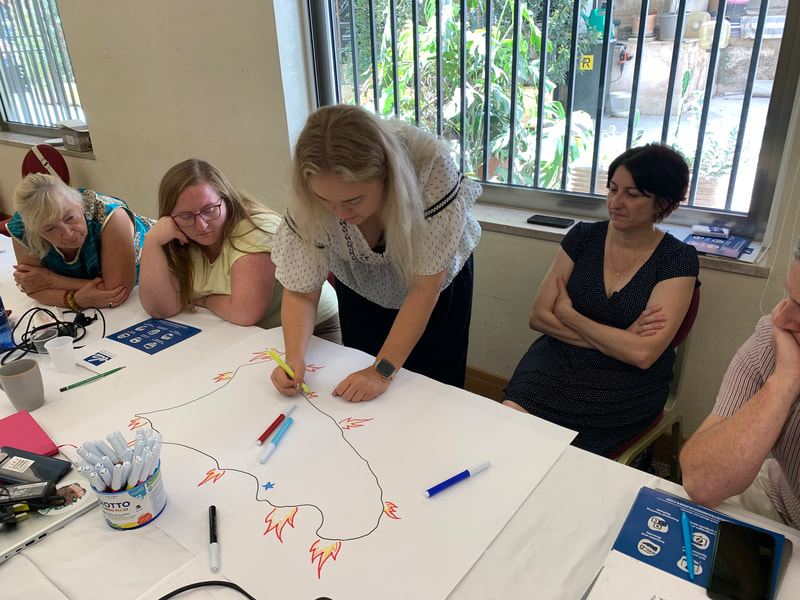
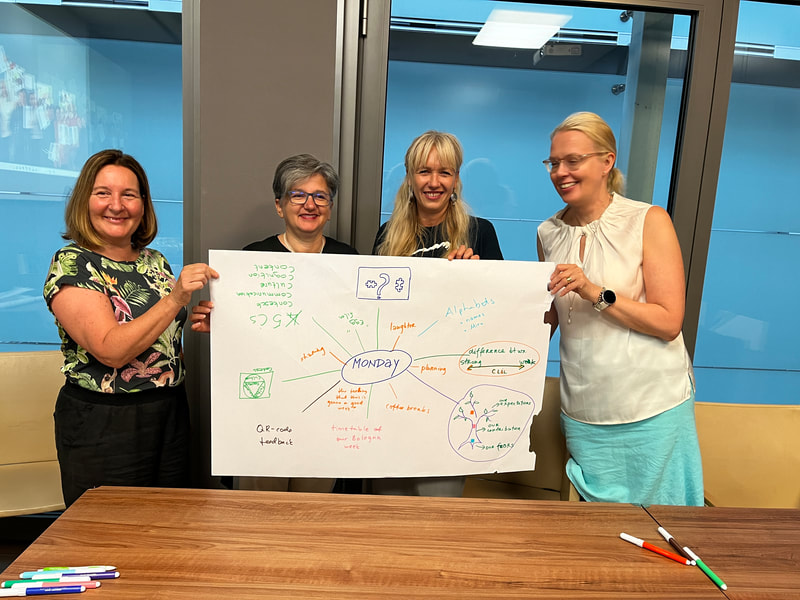
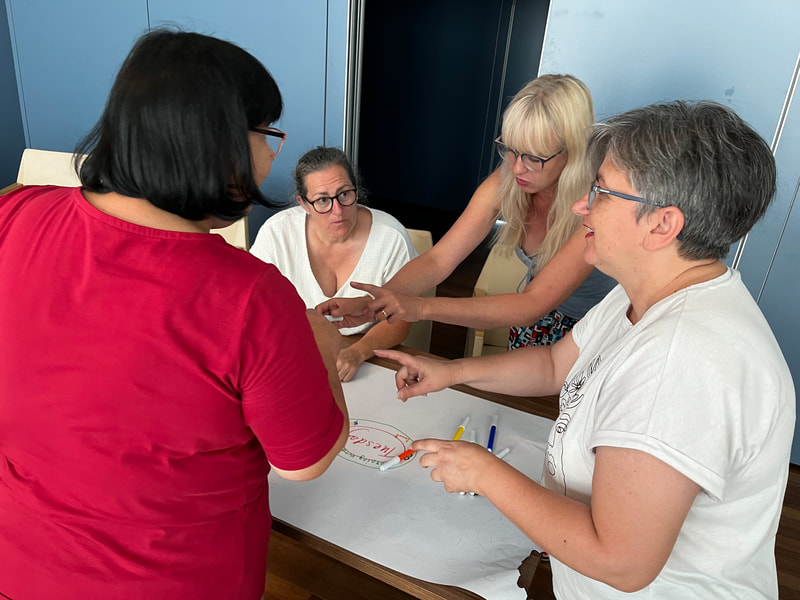
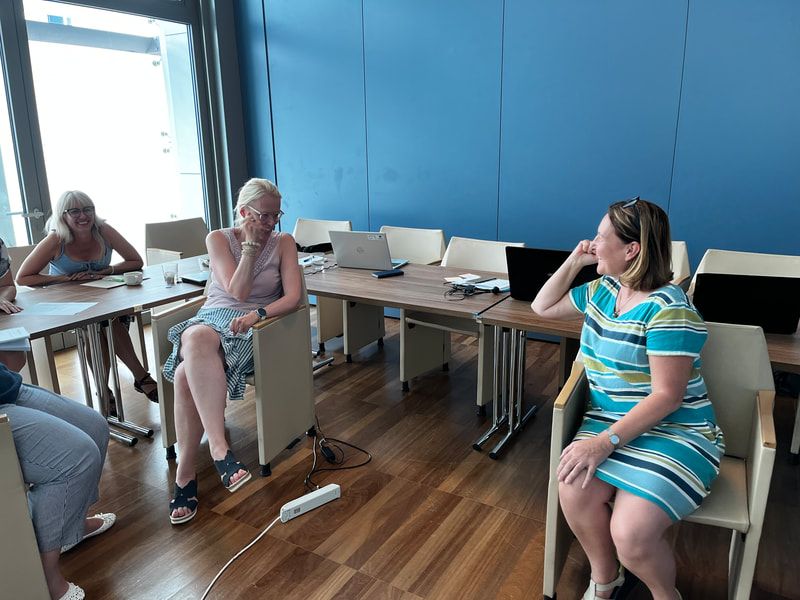
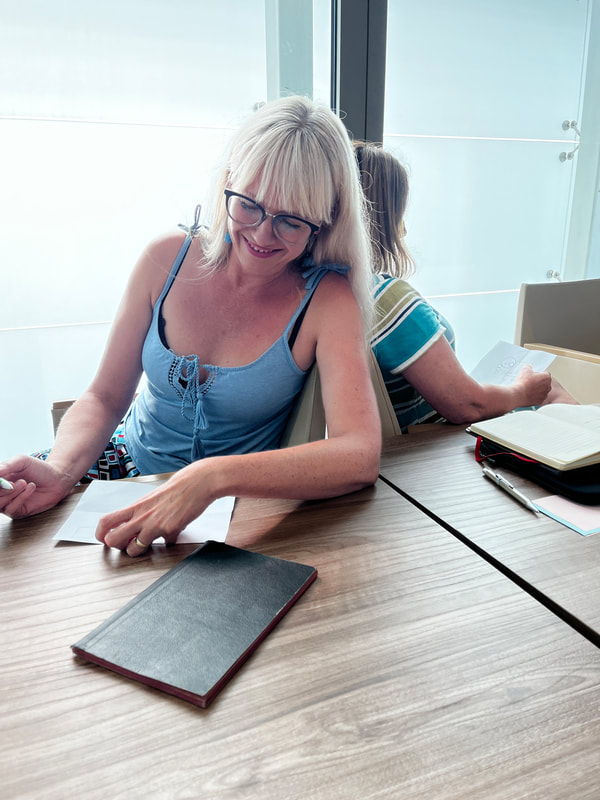
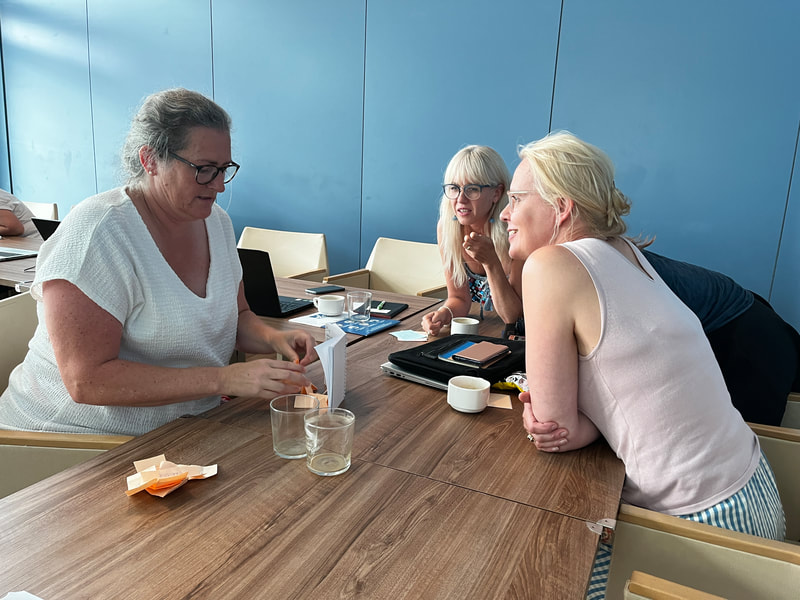
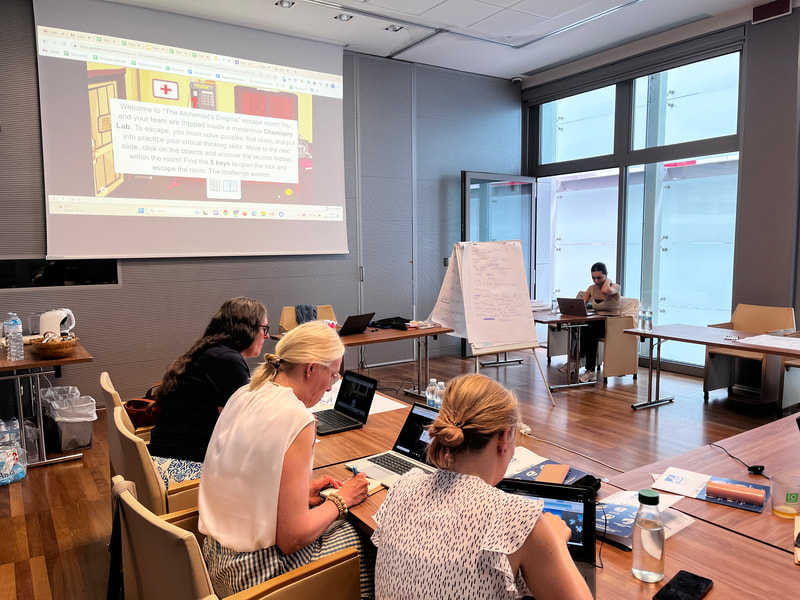






 RSS Feed
RSS Feed









